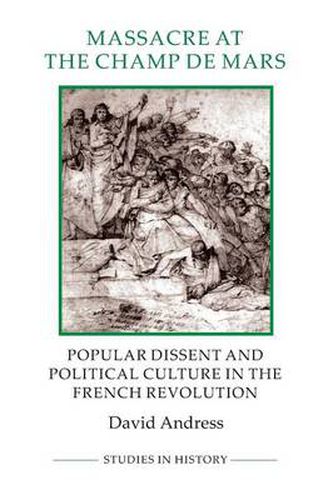Readings Newsletter
Become a Readings Member to make your shopping experience even easier.
Sign in or sign up for free!
You’re not far away from qualifying for FREE standard shipping within Australia
You’ve qualified for FREE standard shipping within Australia
The cart is loading…






On 17 July 1791 the revolutionary National Guard of Paris opened fire on a crowd of protesters: citizens believing themselves patriots trying to save France from the reinstatement of a traitor king. To the National Guard and theirpolitical superiors the protesters were the dregs of the people, brigands paid by counter-revolutionary aristocrats. Politicians and journalists declared the National Guard the patriots, and their action a heroic defence of the fledgling Constitution. Under the Jacobin Republic of 1793, however, this massacre was regarded as a high crime, a moment of truth in which a corrupt elite exposed its treasonable designs. This detailed study of the events of July 1791 and their antecedents seeks to understand how Parisians of different classes understood patriotism , and how it was that their different answers drove them to confront each other on the Champ de Mars.
David Andress is Professor of Modern History at the School of Social, Historical and Literary Studies, University of Portsmouth.
$9.00 standard shipping within Australia
FREE standard shipping within Australia for orders over $100.00
Express & International shipping calculated at checkout
On 17 July 1791 the revolutionary National Guard of Paris opened fire on a crowd of protesters: citizens believing themselves patriots trying to save France from the reinstatement of a traitor king. To the National Guard and theirpolitical superiors the protesters were the dregs of the people, brigands paid by counter-revolutionary aristocrats. Politicians and journalists declared the National Guard the patriots, and their action a heroic defence of the fledgling Constitution. Under the Jacobin Republic of 1793, however, this massacre was regarded as a high crime, a moment of truth in which a corrupt elite exposed its treasonable designs. This detailed study of the events of July 1791 and their antecedents seeks to understand how Parisians of different classes understood patriotism , and how it was that their different answers drove them to confront each other on the Champ de Mars.
David Andress is Professor of Modern History at the School of Social, Historical and Literary Studies, University of Portsmouth.